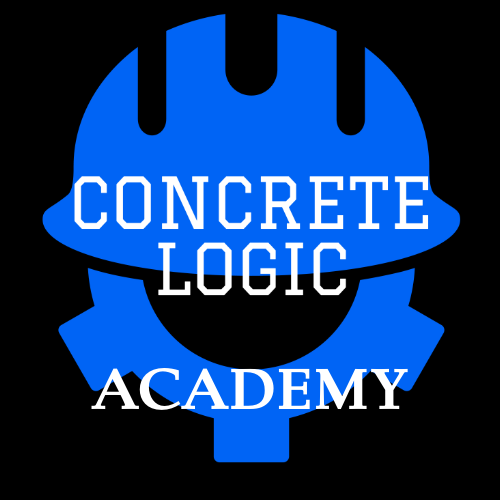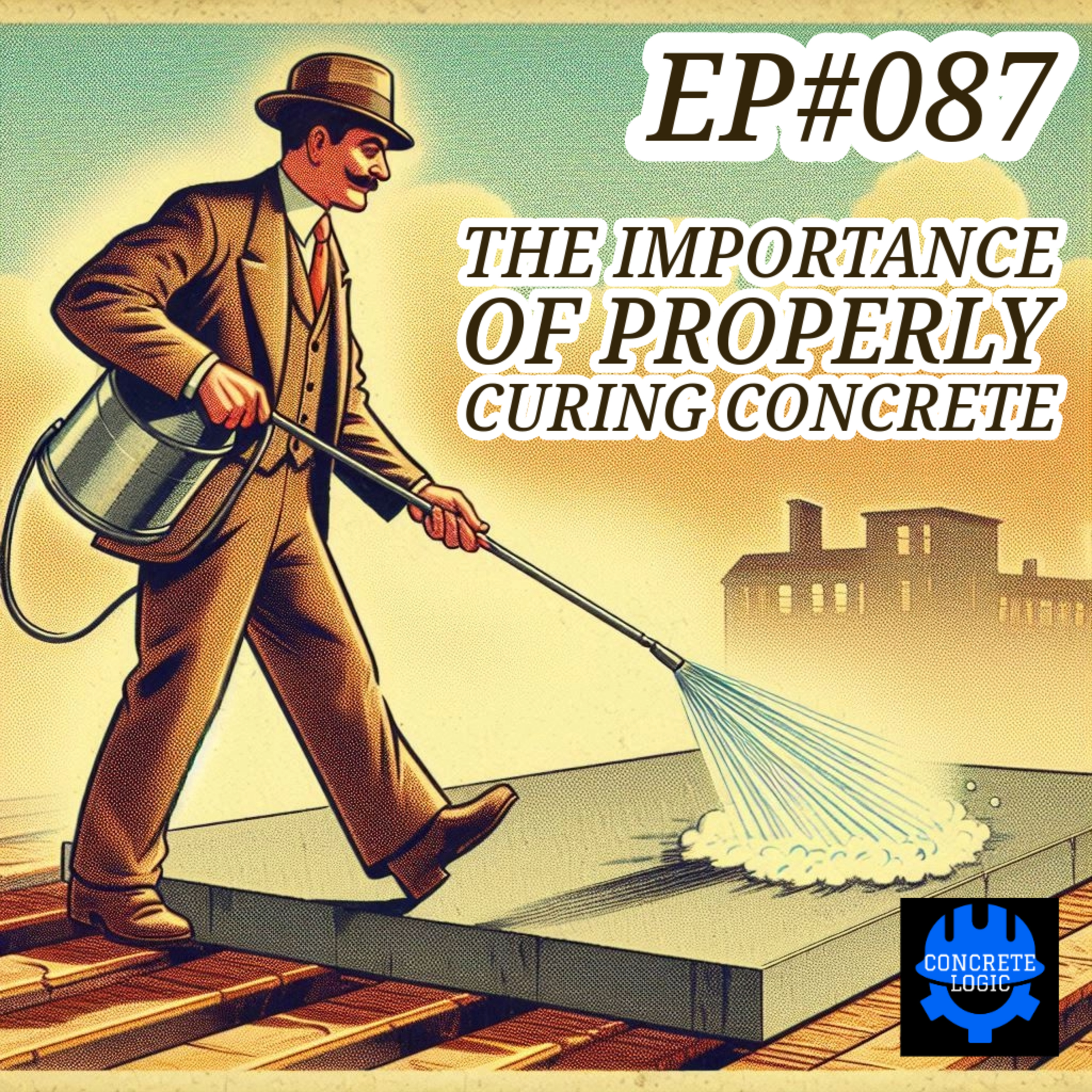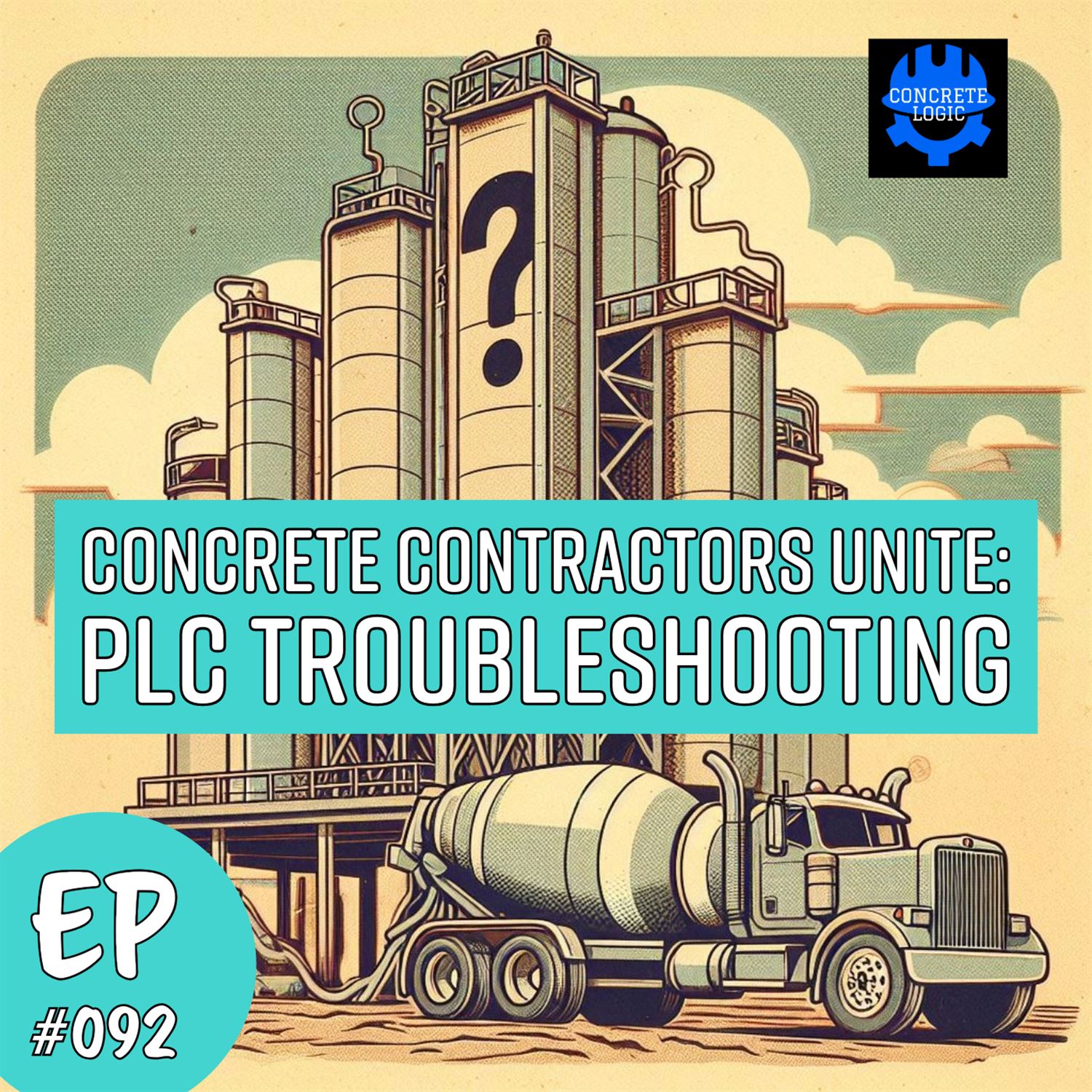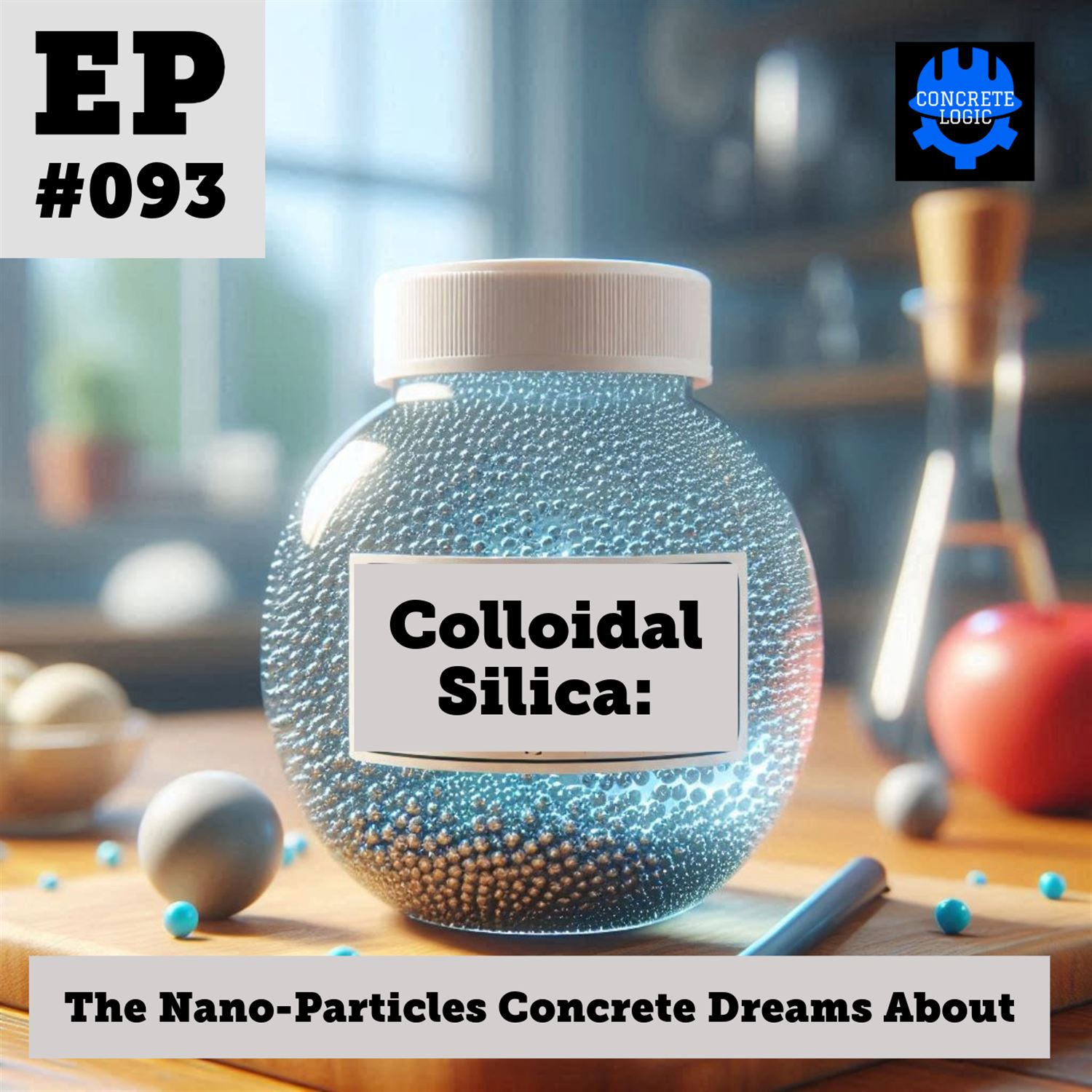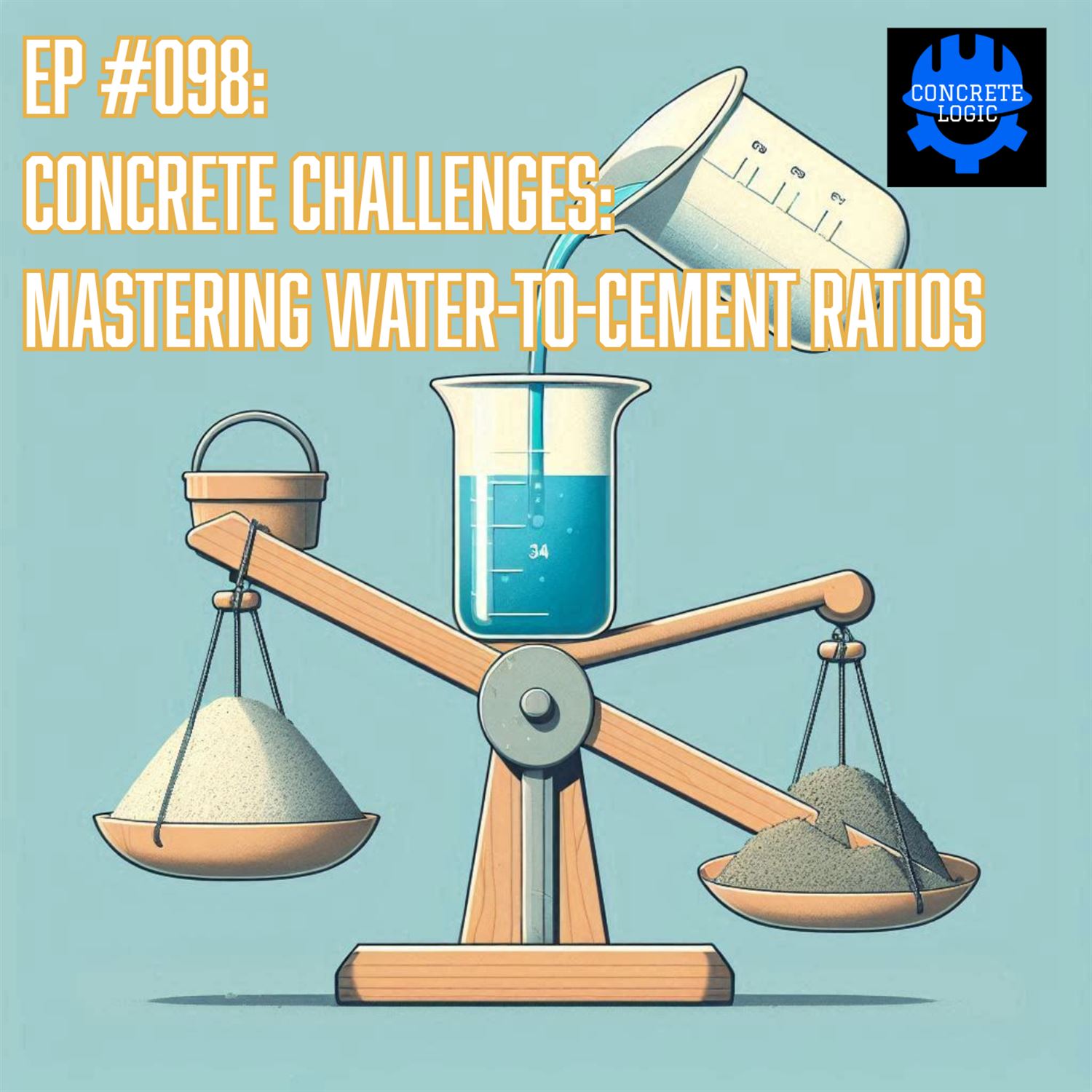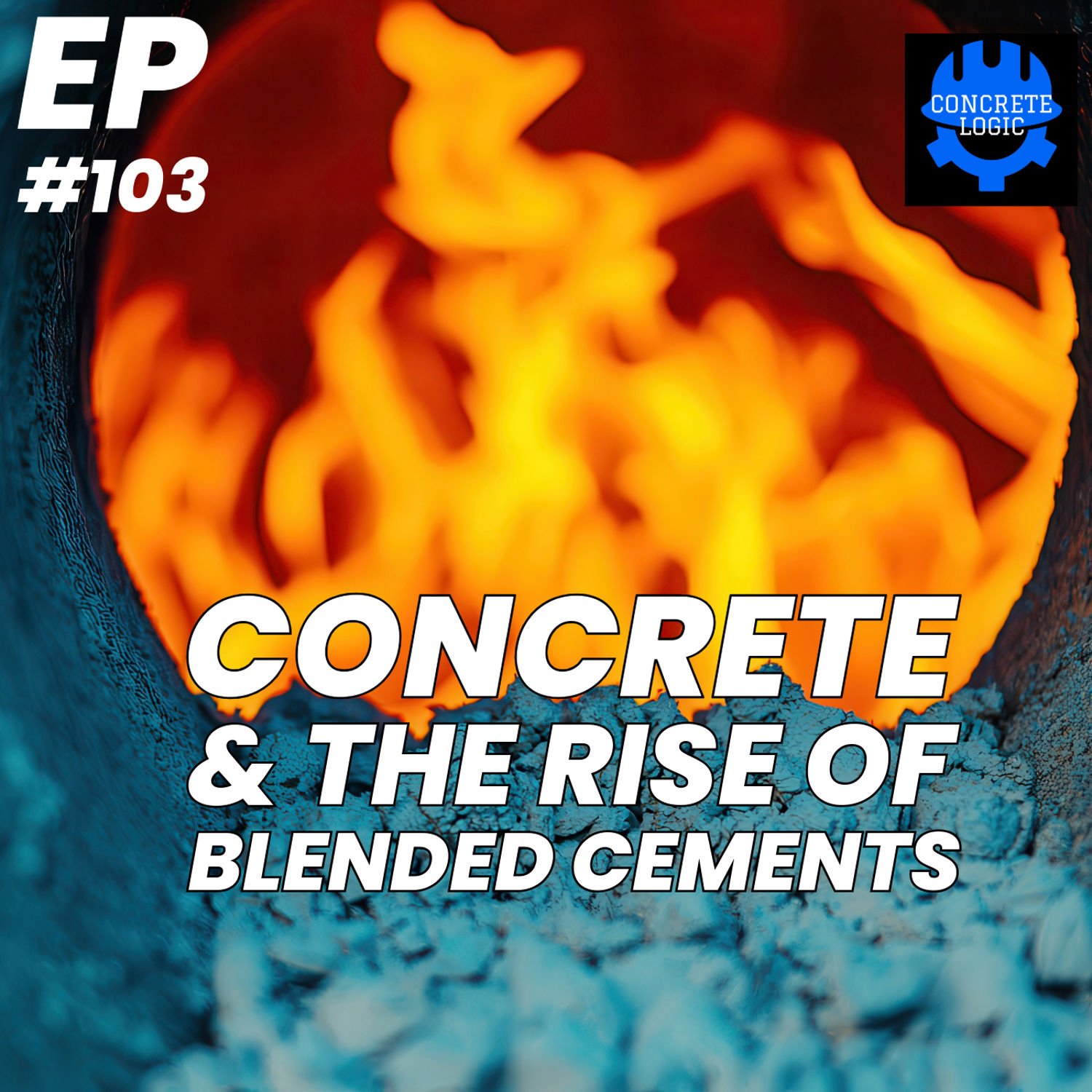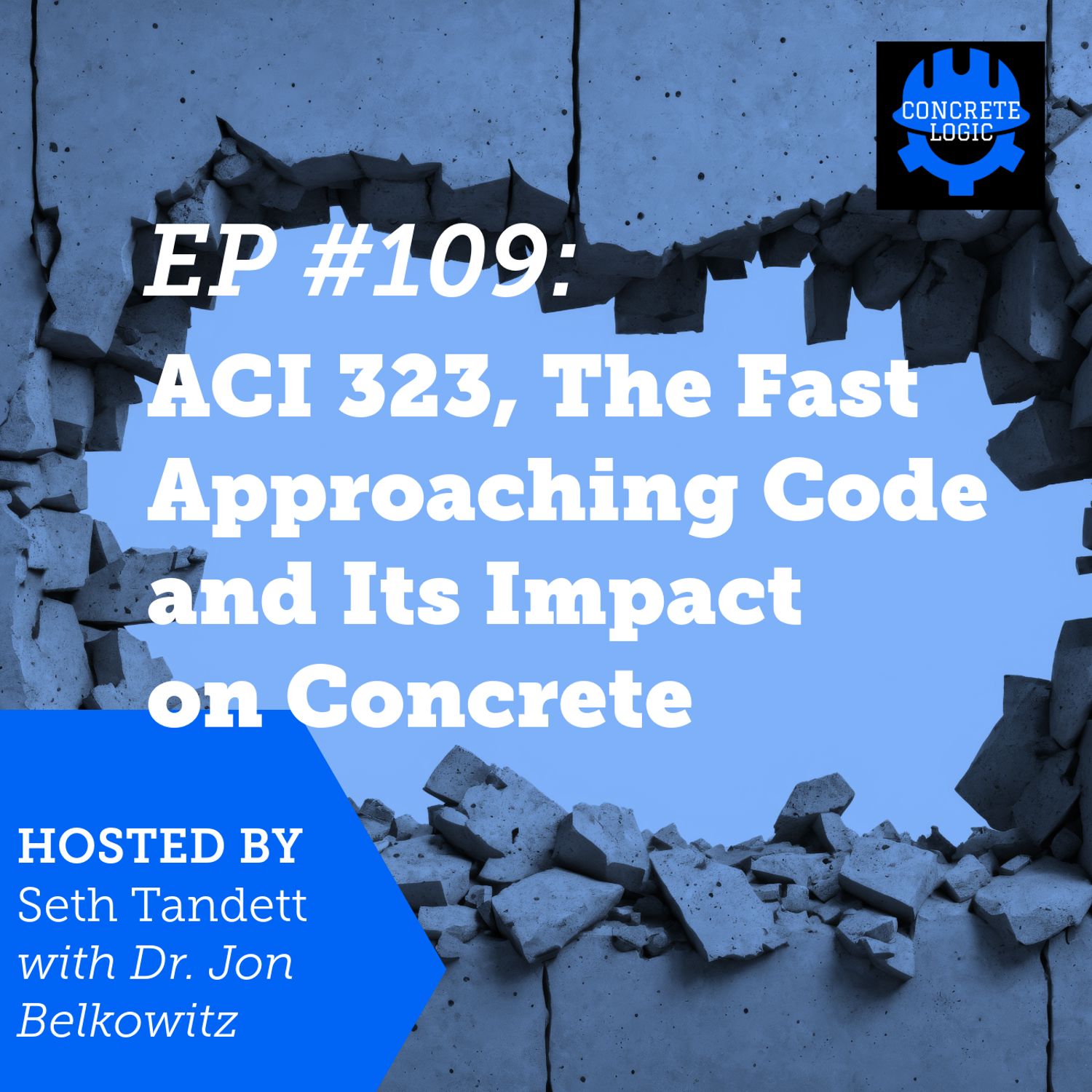EP #059: Skate 4 Concrete

Welcome to another thrilling episode of the Concrete Logic Podcast! Today, we’re breaking the mold and diving into a unique intersection of concrete and… skateboarding? That’s right! We’re joined by Crystal Howard, the innovative mind behind Project Cornerstone and the Skate for Concrete program.
Crystal has ingeniously combined the thrill of skateboarding with the science of concrete to educate the younger generation about the vast opportunities in the concrete industry. Her program is not just about teaching the technicalities of concrete, but also about sparking interest and passion for the industry in a fun and engaging way.
In this episode, we’ll explore how Crystal’s program is addressing the workforce challenge in the concrete industry, and how she’s using skateboarding to make concrete cool for the next generation. We’ll delve into the origins of Skate 4 Concrete and Project Cornerstone, and how Crystal is revolutionizing concrete education.
From the science of concrete to the construction of skate parks, this episode is packed with fascinating insights and innovative ideas. Whether you’re a concrete enthusiast, a skateboarder, or just someone interested in unique educational approaches, this episode is a must-listen.
So, buckle up and get ready for an exciting ride as we skate our way through the world of concrete with Crystal Howard. Tune in now to the Concrete Logic Podcast!
Do you want to support the show? Donations of any size are appreciated greatly! Donate here: https://www.concretelogicpodcast.com/support/
Episode References
Guest: Crystal Howard | Skate 4 Concrete | crystal@project-cornerstone.org
Guest Website: https://www.skate4concrete.com/
Producers: Jodi Tandett, Olivia Stocker
Donate & Become a Producer: https://www.concretelogicpodcast.com/support/
Music: Mike Dunton | https://www.mikeduntonmusic.com | mikeduntonmusic@gmail.com | Instagram @Mike_Dunton
Host: Seth Tandett, seth@concretelogicpodcast.com
Host website: https://www.concretelogicpodcast.com/
Seth: [00:00:00] And welcome to another episode of the Concrete Logic Podcast. And today I have Crystal Howard with me. Crystal, could you please give us an introduction?
Crystal Howard: Hi, Crystal Howard. Thank you so much for having me on Concrete Logic Podcast. This is awesome. I am the executive director of Project Cornerstone. That's a nonprofit that I started in 2014 and we recently just launched our Skate for Concrete program, which is really creating more awareness about jobs in the concrete industry in the to the younger generation through the application of skateboarding. So it's a really fun way for to educate not only them about the science of concrete, but also to let them know about them. The various jobs that are available, just tying it to concrete and skating has been amazing, and it's been really going well and it's [00:01:00] resonating really well with students.
Seth: Yeah, that's awesome. So we talked a little bit before we hit record, and this is by far the most unique way that I've seen someone approach our workforce challenge that we have to get more folks interested into the concrete industry. Great. I, I was sharing with Crystal, someone posted on LinkedIn.
I think it was Dominic from Connecticut and posted the Skate 4 Concrete website. And I went in there and was checking it out. And I was like, oh, skateboarding and concrete. That's kind of right up my block. I, was sharing with Crystal that at one time when I was a kid, I thought I wanted to be a skateboarder.
I'm sure many, many, kids were like that, but I grew up in the era of Tony Hawk and I think the eighties was when skateboarding kind of took off and there was all kinds of videos and [00:02:00] movies made out there. These kids skateboarding and concrete pools in California and everybody wanted to be cool like those kids and there, wasn't a lot of skate parks out there. So that was kind of one of, one of my questions for you, Crystal. But I guess first, could you talk about the origin of Skate 4 Concrete and maybe Project Cornerstone, how all this developed?
Crystal Howard: Yeah. So in 2014 started Project Cornerstone really started with tying concrete education through meeting the standards that's teachers need to me.
So we looked at next generation science standards and I wanted to talk about aggregates, concrete asphalt. I want to talk about it all, like, all of our material industry and no one knew what aggregates were. No one knew what asphalt was, even they just refer to it as blacktop. But all the students and teachers at least thought they knew what concrete was.
We [00:03:00] all know that cement and concrete is not the same thing, but they definitely most, people that you talk to or run into on the street would think that concrete and cement are the same thing. So it be kind of just graduated. I started the education process through concrete and talking about the science of concrete.
And teachers love that. and then I started to focus on Career Technical Education, CTE, and they have a construction pathway. And part of their curriculum is they have to talk about concrete, or the teacher has to teach about concrete. And so we had a sieve analysis and a concrete making activity that we did in the classroom.
But the teacher I was working with the administration was giving him the same students the following year. And so he was like, we can't do the same activity because they'd already done it. So, I just kind of went back to the drawing board and I was like, [00:04:00] okay, so we know kids really like talking about concrete.
They love making concrete. So what can I do differently? And at that time being in California, you kind of run into skateboarders or you see skating and I was, I just saw the concrete skate parks that were being built in the community and meeting different skateboarders and hearing about their, passion of, you know of, concrete in a different, very different way.
And it just kind of clicked. I was like, wow, like skateboarding on skate concrete skate parks and teaching concrete education through those that application was just like, it seemed to go really well. And when I created the program, and I brought it into the classroom the kids really resonated with it more.
Their eyes lit up even more. The teacher loved it because the kids had fun learning. And when we ended up creating the concrete certification [00:05:00] through the support of Concrete Advancement Foundation the final project is building a mini concrete skate park. Teachers and classes started having competitions.
They'd break kids up into student into groups into teams, and then they started having concrete many concrete skate park contests. And it helped to have, like prizes from skateboarders in the community. Mike McGill is a big supporter of that. He would donate signed boards or, t-shirts and, the kids just loved it, but definitely like a community that is passionate about concrete as we are, and then it, really showed me how, what a big difference you can do in the workforce development arena, or just trying to help solve that workforce development.
Issue is to really create a message. That's very [00:06:00] specific. You may think that you're if you talk to everybody, no one hears you. But if you talk to a specific application or community people start to hear and listen and, the videos that we created for this program through 900 Films, which is Tony Hawk's film production company that really kind of, if you go to our Skate4Concrete.Com website, the videos really tell the story about just the various jobs in our industry that go into just building a skate park.
So it's. It's, and that's probably a long story for you, but that's how it was born, I guess.
Seth: Yeah. So is the, I guess the backbone of the Skate 4 Concrete is it this concrete certification program? Is that essentially what this thing's built on?
Crystal Howard: There's, it's supposed to be like a circular [00:07:00] kind of ties all together.
You, the certification is for high school. So high schools, Career Technical Education, get grants from the state. Let's say to teach, you know, to support their programs and teachers need something and need, you know, when they're, writing their report about how what they did with the grant money.
Most of the time, they have to say how many certifications that their students got. There's really no certifications in construction realm for high school. So if we wanted to talk about concrete, this is one way to give an incentive for the teacher to bring it into their classroom. So that's the reason for the certification.
It ties it into the website, which talks about jobs. So there's a career page on the website as well, where you can search job openings in, in your community. So you can click on this. There's a map of the state and you can click [00:08:00] on that particular state that you're in and look for job openings within the concrete industry.
So, part of the certification is for them to also go back to the website and learn about jobs in the industry and or watch those videos so that they can kind of resonate with it a little bit more. There's a digital aspect to it. So, the certification is supposed to create awareness about jobs in our industry at the high school level.
And then the website is really built on, like, how do we search for jobs once we know we want a job in the concrete industry? So, that's and then what do jobs look like? So it's really workforce development focused. But how do we create that awareness and access to different job openings?
So, it educates about what jobs and I’m really kind of focusing on entry level positions that don't require a 4-year degree. [00:09:00] Obviously there's way more opportunity in our industry beyond that, but just to get started. That's my focus, that's where I wanted to focus. So it's job focus, but they all kind of tie back into that theme.
Seth: Yeah, where was I? Oh, yeah. Concrete construction jobs.
Crystal Howard: And it talks about the supply side and the concrete construction side. Yeah.
Seth: Yeah, well I, went to the construction side because I'm biased.
So, yeah, on the construction side, you got construction, concrete, QA -QC, concrete laborer, equipment operator and concrete finisher. I guess that's a good question. When do the kids gravitate to the concrete supply jobs or the concrete construction jobs? [00:10:00]
Good
Crystal Howard: question. I want to say it's all over the board. The one thing that I do know is they love making concrete. And then just looking at learning about the mixed designs and how the curing process. So that, seems to be what really like creates a lot of awareness and excitement. They love the finishing side because, you know, everybody, it seems like learning a skill is, kind of resonates with that dopamine hit.
And like, cause when you start to do a good job, then there's that immediate gratification. Cause you can see the difference in concrete as you're finishing it. Yeah.
Seth: So how do you, introduce the making the concrete? How do you introduce that to the kids? [00:11:00]
Crystal Howard: When you're mixing it, when you're actually making it.
Seth: Yeah, how do you do that? And yeah, when you're making the concrete, do you do that in the classroom first? Do you guys go walk at a ready-mix plant or how do you introduce that? They seemed to enjoy what you're talking about more when they when you're actually making concrete because we were again before we hit record, we were sharing are my challenges working here and trying to get kids introduced to concrete.
Crystal Howard: The, I always start with the education about what is concrete and challenging them on what's the difference between cement and concrete. And then just busting that myth that they're not the same thing first of all, and then teaching them about the different ingredients that go into it and then the chemical reaction that [00:12:00] occurs.
And then you, make concrete generally from that standpoint, the certification has different modules, and you make concrete at the end when you're making the mini concrete skate park. But up to that point, you're learning about mix designs. This is, you know, admixtures the sustainability, how do you calculate volumes of concrete and the construction side when you need to build stairs, et cetera.
I think it, and then when I work with classes locally, it's always better for me and the students, not for me, but the students to take a tour of a quarry or ready-mix plant after they've gone through the certification, because then they know what they're looking at and they have better questions.
Seth: That makes sense.
So you're [00:13:00] there but they don't make any concrete till they go. How long is the program?
Crystal Howard: The certification is if you were to sit down and do it all the way through, it probably wouldn't take more than 10 hours. How long it would take for them to make the mini concrete skate park it just will vary depending on how they want to do it themselves. So it was like the OSHA 10 it's supposed to be similar to OSHA 10 to 20 hours. So I didn't want it to take more than that. And so far, the feedback that I've gotten from the teachers is that's about correct. And it is. It's best for the teacher to kind of teach each module and then have the kid go through the module.
And so that in that regard, the teacher kind of dictates how long it takes to go through the certification. So, I think the [00:14:00] beauty of it is certification is there's no one way to do it. It is all online. And so when the student finishes the certification, it automatically sends them a certificate and the teacher will have access to a PDF version of it.
And the answers to all that the activities and the quizzes. And then we did a summer camp that was this past summer. In line with a certification or using the certification as part of that and we're going to have a competition between districts this coming summer about the mini concrete skate park. That's a great way to get the industry involved doing - tours of plants or having them as judges. For the final competition and the final presentation from each of the students. So, I think the beauty of the workforce development, this type [00:15:00] of specific application is as an industry, we're able to speak a little bit more clearly about what we do when we have that specific application.
Like, why when we're looking at the construction of a skate park and the smoothness of concrete and those mixed designs, you can kind of critique that more clearly when it's a specific application.
Seth: Yeah, this is fantastic. You said that it's high school kids. So if they take it in the school environment, is it just like another class that they go to?
And you were saying if you sat down and it'd be like 10, between 10 to 20 hours a day or 10 to 20 hours altogether. So do they go and do an hour each week or something? Is it like that?
Crystal Howard: It could be that way. There's a homeschool version of the certificate and then there's a teacher that has students and the teacher leads them through it.
So [00:16:00] the teacher would, in that case would somewhat dictate how long it would take. Or this, I mean, if you just that's why I'm saying it's so flexible. You could sit down and do all of the modules, or the teacher could say today we're going to learn module and what, teacher is that? So it's, fits really well with career technical education in the construction and manufacturing pathway, because concrete is manufacturing, and there's different pathways constructions one and manufacturing is a pathway.
Or even just your engineering teacher or your science teacher. So all of those, then the teacher would just implement it within their normal classroom.
Seth: And do you have any stories of any kids that have gone through this program and actually Went ahead with them, like the career paths you're [00:17:00] showing and actually get a job local?
Crystal Howard: We just launched it this year. Probably March-ish. So I have seen people get hired as a result of it.
For the concrete certification, you don't have to be a skater to enjoy the curriculum. So it's any student really. It's kind of you probably have a friend or you've seen it on TV or whatever, so it resonates with them. But I have seen through educating and creating awareness about job openings in the area, which we do that on our Instagram page.
A local skater who basically has changed his life by starting as a laborer at a quarry because he saw the job opening on our Instagram posts and now, he's like operating equipment. He's just, his whole life has changed. So that part is amazing. He loves that his company could probably be [00:18:00] pouring the concrete in the skate park that he's been advocating for years and wanting to get built.
So there has been amazing stories already. We had a skateboarder who is a student at the Chico State Concrete Industry Management program, and we created an internship for him this year and he spent the summer building a skate park in Kansas and next week, I'm going to the grand opening.
He built the, he was building the skate park with Newline Skate Parks and then the local concrete industry would take him on 1 day a week and take him on tours of a quarry ready mix plan and really learning all aspects of the business. He ended up getting hired by anybody that met him.
He was just so amazing. He was such an amazing kid. I'm still going to the CIM program, but I think this is a great way to [00:19:00] really educate about the amazing education you can get in the concrete industry management program that we have on offer for our industry as well.
Seth: Yeah, this is just a great way to get kids introduced to it.
And again you said, I just want to emphasize this. You said the point or what the kids really enjoy is making the concrete, right? You, I was telling you how we, we were, we played with ideas of, showing them formwork cause we thought, you know, kids like Legos and putting things together so formwork could be kind of cool to them.
But it seems like you keep saying that. That, whole making the concrete process, that's what they enjoy. They like getting their hands dirty and seeing that. Yeah.
Crystal Howard: If you want to, like, that's how you really [00:20:00] reach them having an activity where they have to mix each ingredient individually, and they learn about each ingredient.
So they learn about sand, the rock crush rock, or whatever gravel that you have 3/8 inch don't use anything bigger than that in these little projects. Right? then the cement and the water and learning. Just getting that mix the, mix design, correct the water to cement ratio kind of really resonates, you can incorporate admixtures there, like as well. And then adding color. Oh, yeah. Really sets it off. So the, and then just having them mix it, like they, it's interesting the questions you get, cause they think the rocks are going to go away. And many kids will come up to you and go, how come the rocks are not going away?
[00:21:00] And you really get to teach them what, why is it important to have aggregate in our concrete in, general? And do you want your chocolate chips to go away in your cookie? So, but you really get to teach you like, you know, why are aggregates so important in that process? The bulk and strength and because when you look at concrete, it's really, you don't see the rock unless it's been shaped off or something.
So many times they don't even realize that there's rock and sand in, in the concrete. And then just being able to watch the curing process, how long do they get to wait to take it out of the mold and, have a, you know, see what they made. We use if they're not making the mini concrete skate park, I use silicone molds in the shape of a bug, a football flower, whatever.
And obviously like the form [00:22:00] the art part of it is underneath and so you don't get to see it until you take it out after it's been cured. And they, just that whole process, it's almost like birthing a baby or something that they've created, they get to be creative, they get to make something, and they'll keep it, they'll they, think it's amazing.
So it really opens the world up of concrete and they, walk outside the door and all of a sudden, they see concrete everywhere. And they're like, oh, wait, this is like everywhere. I could do anything with concrete.
Seth: That's great. So if, there's folks that are listening and I assume they can, this is this concrete certification you're, allowing anyone to utilize it, right?
So how does that work? Does it teachers reach out to you? How if they're interested?
Crystal Howard: Yes, you can obviously you can go on the website and register [00:23:00] for it or sign up for the certification to reach out to us. If you have questions. If you're an operator, and you want to have a tool to use in your community with local schools, this is a great way to take them say, hey, there's I have this concrete certification.
When they're ready to make the mini concrete skate park, they would need supply, so it's a great way to create that connection between you and the plant and the local school. They could reach out to me through the Skate4Concrete.com website and I can help them get set up.
It's also easy just to register through the website right now, it's free to do the certification. As we launch this, getting all the feedback, making sure it's working well for teachers, I've gotten really good feedback, but the best feedback I've gotten is that it's [00:24:00] the best activity that the kids did all year. So, yeah,
Seth: That's promising, Crystal. That's great. I appreciate you reaching out again. We'll post the Skate 4 Concrete website on the show notes when we publish the podcast. And then is it best just to contact you through the website or would you like to share an email?
Crystal Howard: You could do an email crystal spelled like the gem at project-cornerstone.org. And again, Project Cornerstone is the nonprofit, and Skate 4 Concrete is our program for creating more awareness about jobs in our industry.
Seth: Thank you, Crystal. I appreciate it. And we'll have to stay in [00:25:00] touch so I can steal some ideas from you.
Crystal Howard: Yeah. Yeah. Let's do it. Thanks for having me. This was really fun.

Crystal Howard
Executive Director
I have worked in the construction aggregates and concrete industry for nearly 20 years. In 2014 I started the non-profit Project Cornerstone. I wanted to be a part of the solution to solve the workforce shortage in our industry. I started teaching general concrete knowledge and found that I could take it to the next level by applying it to a specific application. Thus, the creation of the Skate4Concrete program. Applying concrete education with skateboarding has really made a difference and has created more awareness of the amazing career opportunities in the concrete industry.







